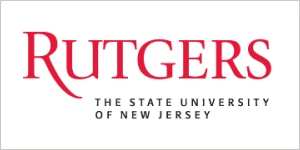Broader Impact:
During the course of the project, several graduate and undergraduate students have been trained in an area of emerging interest, namely psychophysics and wireless networks. In particular, both graduate and undergraduate women students have been integrally involved in carrying out the research in this project. Two PhD theses (one in ECE and one in Psychology) were completed including one by a woman student. Additionally, a third PhD thesis is expected to be completed in the next year. One Masters thesis was also completed. During the first year of the project, the analytical work and the development of a testbed for psychophysics studies was carried out by Leonard Park, a graduate student in ECE. The experiments were performed by one graduate student, Neha Sinha, a senior undergraduate, Alysia Tsui, and a junior undergraduate, Jiayu Lu, all from the Psychology department. Sinha completed her PhD thesis and is a postdoctoral researcher at Rutgers University, Newark. Tsui also graduated with her undergraduate degree in Psychology. Jiayu Lu also directed new undergraduate research assistants in the collection and analysis of the data during the second year of the project. During the second year of the project, Leonard Park received an MS in ECE for his work developing the test bed and analyzing the behavioral results. The testbed development for smaller and large screen displays was carried out by ECE undergraduate student Avanish Mishra. The data collection was carried out by three undergraduates in Psychology. Christopher Metry directed the data collection, Jiayu Lu and Zihuan Cao assisted in the data collection for their capstone senior projects. They have now graduated. During the third year of the project, a new student Mohammad Yousefvand who is pursuing his PhD was recruited to the project to work on prospect pricing in HetNets and the impacts of end-user behavior on user/network association in HetNets. Additionally, another PhD student Mohammad Hajimirsadeghi who completed his PhD thesis carried out studies related to content popularity. He is currently a postdoctoral researcher at Princeton University. Several other undergraduate students from ECE and Psychology departments (listed in the People section) were also involved in various aspects of the psychophysics experiments.
Impact on other disciplines:
Psychophysics was developed in this project to relate the perceived and objective values of the dimensions of simple sensory stimuli such as lights and sounds. The application of psychophysics to cognitive judgments of complex signals has always been problematic and its value must be determined on a case-by-case basis. For example, there is no psychophysical function that relates the entertainment value of a video to the purely sensory characteristics of the video. Obviously, entertainment value is strongly influenced by the content of the video, which is not directly related to its sensory characteristics. Therefore, that a simple, coherent perceived quality function would be generated from its objective transmission qualities was not a forgone conclusion and the actual shape of such a function was completely unknown. The fact that a psychophysical function was found to exist validates and invites future studies of the relationship between transmission quality and Quality of Experience (QoE) in engineering, psychology, communication, and any other field where this might be important.
Outreach:
In addition to publishing in journal and conference forums, the co-PI Glass organized a special symposium at the Eastern Psychology Association meeting in Boston, MA in March 2017 around the theme “The Role of Technology” to disseminate the results of psychophysics studies of wireless QoS and to bring together likeminded researchers at a common forum. The meeting attracts 1000-2000 psychology faculty and graduate students from the northeastern United States. The symposium was entitled, “Too Little of a Great Thing: Ecologically Valid Studies of Human Usage of the Worldwide Web.” The presenters and presentations were: Carlee Joe-Wong
(Carnegie – Mellon University), an economist, spoke on Smart Data Pricing: Using Incentives to Reduce Peaks in Mobile Data Traffic; Arnold Glass (Rutgers University),
a psychologist, spoke on The Psychophysics of Video Quality; Janne Lindquist (Rutgers University), a computer scientist, spoke on Ecologically Valid Studies of Security
and Privacy Behavior in the Wild; and Margaret Ingate (Rutgers University), a psychologist and former Merrill-Lynch executive, who served as Chair and Discussant. The
interest and enthusiasm among attendees at the symposium was very high and demonstrated considerable interest on the part of psychologists in engaging in
collaborative research with technologists on complex systems involving human – machine interactions. However, the questions asked also indicated that psychologists
are baffled about how to meet such technologists in order to join teams working on system problems; an aspect that this project and team are exemplifying. Additionally,
the PI Mandayam also gave a talk on the work related to this project as part of the ECE Department Colloquium Series at the University of Illinois@Urbana-Champaign in
November 2016. Co-PI Glass is scheduled to give a Psychology department seminar titled “The Psychophysics of Video Quality” at UCLA in February 2019.


